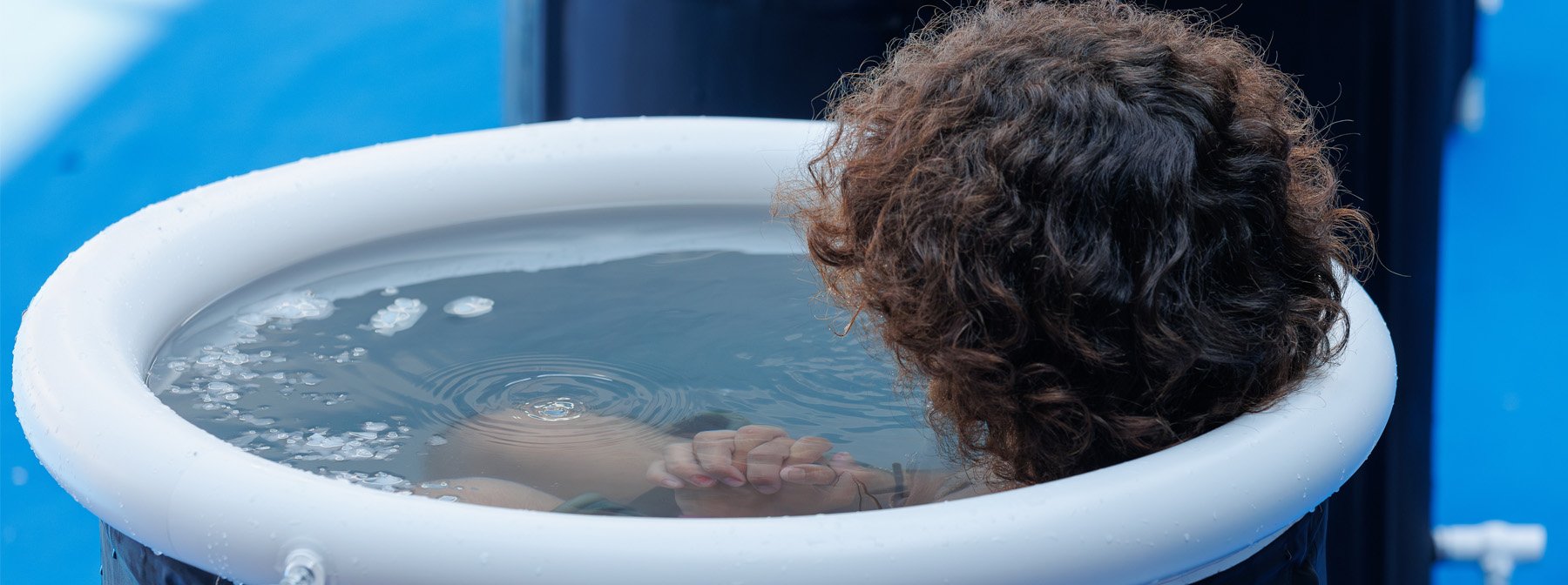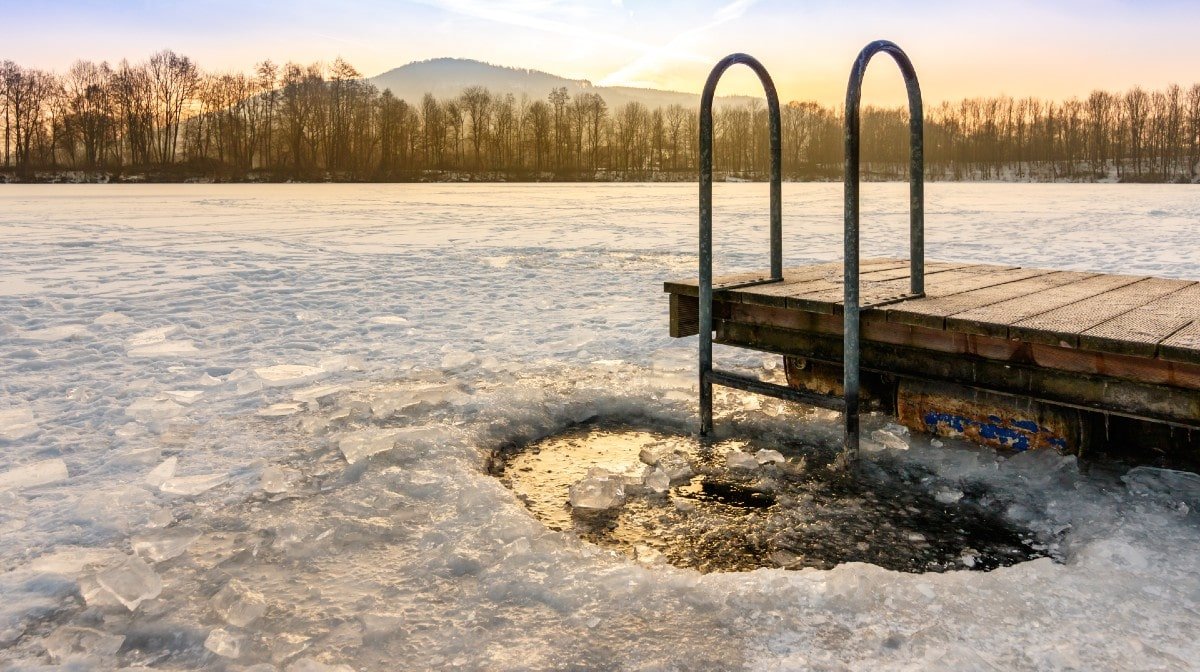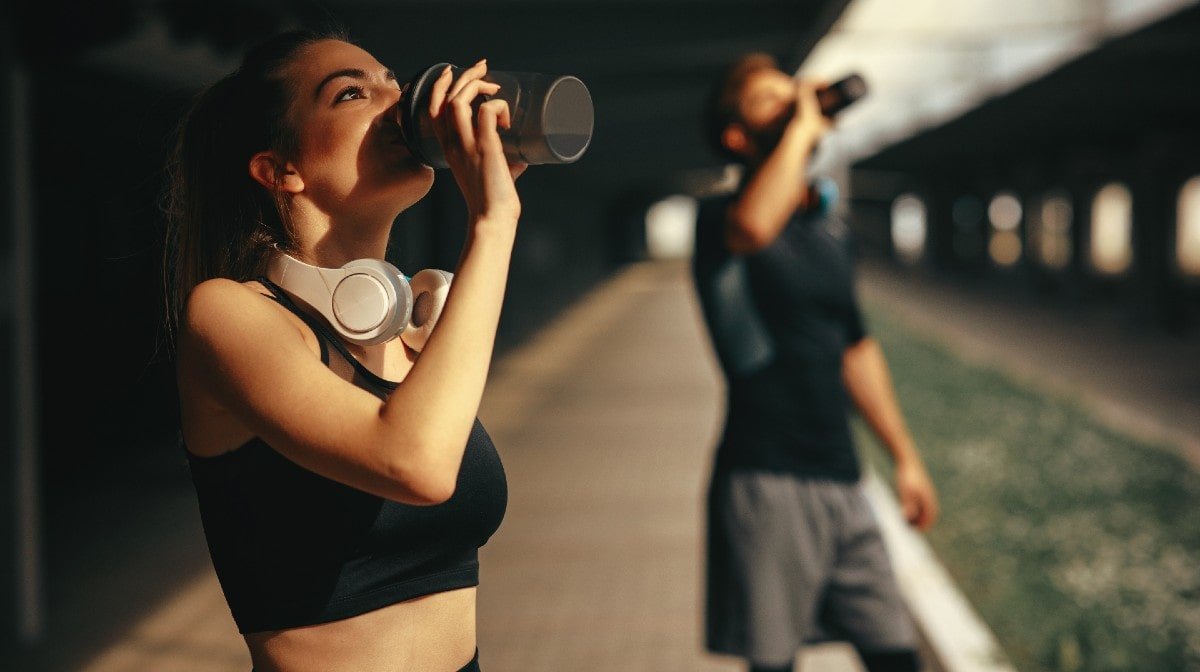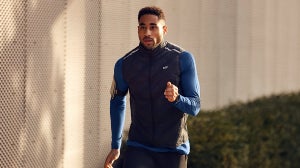
Cold water therapy, also known as cold exposure or cold immersion, has gained popularity in recent years as a invigorating way to enhance physical and mental wellbeing. Whether you’re an athlete seeking faster recovery or simply someone looking to boost overall health, cold water therapy could offer a refreshing path to wellness.
Common cold water therapy methods include cold showers, ice baths and even open water swimming. Generally, temperatures of 10-15C are effective, but cryotherapy can also be used in very small sessions of up to three minutes at sub-zero temperatures. Those with a high tolerance could see different effects from temperatures lower than 10C.
Jump to:
- What does an ice bath do?
- Historical background of cold water therapy
- Health benefits of cold water therapy
- Cold water therapy techniques
- How to get started with cold water therapy
- Cold water therapy for athletes
- Cold water therapy and immune system boost
- Potential risks and contraindications
- FAQs
- Combining cold water therapy with other health practices
- Cold water therapy: myths vs facts
- Future research and developments in cold water therapy
What does an ice bath do?
Ice baths, a common form of cold water therapy, involve immersing your body in ice-cold water. The shock of the cold can stimulate circulation, reduce inflammation and support muscle recovery. Athletes often use ice baths after intense workouts to soothe sore muscles and promote faster healing. However, the benefits stretch beyond physical performance and into general health and wellbeing.
For more info on ice baths, check out this article:Historical background of cold water therapy
Cold water therapy’s roots go all the way to ancient times. The Greeks and Romans practised “hydrotherapy,” using cold baths for health and relaxation, and also used contrast therapy in hot springs and plunge pools similar to modern spas. Although it’s unlikely people at the time understood the science behind what they were doing, they still recognised the holistic benefits.
Health benefits of cold water therapy
The health benefits of cold water therapy can be split into two main categories, physical and mental.
Physical benefits
Circulation: Cold water constricts blood vessels, encouraging efficient blood flow and supporting circulation to the core and organs. This can improve heart health and reduce the risk of varicose veins.
Inflammation: Cold exposure decreases inflammation, making it useful for managing conditions like arthritis. It can help increase movement in inflamed joints and reduce the release of inflammatory markers.
Immune System: Cold water stimulates white blood cell production, strengthening immunity and triggering a cellular response that increases activity. It also stimulates the lymphatic system and increases drainage, boosting the immune response.
Enhanced Recovery: Athletes recover faster from intense workouts with cold water therapy. It helps blood flow and reduces activity markers that cause soreness. With reduced soreness and improved mobility, athletes can train again sooner and harder.
If you're really looking to boost your immune system, try these supplements too:
5 Supplements That Support The Immune System
Simple ways to support your body from the inside out.
Mental health benefits
Stress: Cold showers stimulate the release of endorphins, mood-enhancing hormones that can promote feelings of relaxation or wellbeing. Cold water activates the parasympathetic nervous system, responsible for the “rest and digest” response, helping you feel calmer.
Alertness: Cold water can have an invigorating effect, triggering a surge of adrenaline and increasing circulation. Basically, it’s like a wake-up call that sharpens focus and alertness.
Resilience and Mental Toughness: Cold water immersion isn’t always a pleasant experience, especially at first. By willingly facing discomfort, you can build mental resilience. The mental strength needed to endure cold water can translate to other areas of life, reinforcing the idea that you can overcome obstacles with determination.

Cold water therapy techniques
Cold Showers: Gradually decrease the temperature during your shower. Start with 30 seconds, increasing up to a couple of minutes over time.
Ice Baths: Fill a bathtub with cold water and add ice. Get in for 10-15 minutes, breathing deeply to stay calm. If you can’t face going all the way up to your neck, partial submersion up to the waist can still be effective.
Cold Water Immersion: Once you’re used to facing cold temperatures, get into the great outdoors and take a dip into a natural body of cold water, such as a lake or river. Nature’s coldness provides a unique experience
Cryotherapy: Whole-body cryotherapy involves standing in a chamber filled with extremely cold air for a short duration of about three minutes. Ensure your hands, feet, and head are covered, as temperatures can go down to -150C.
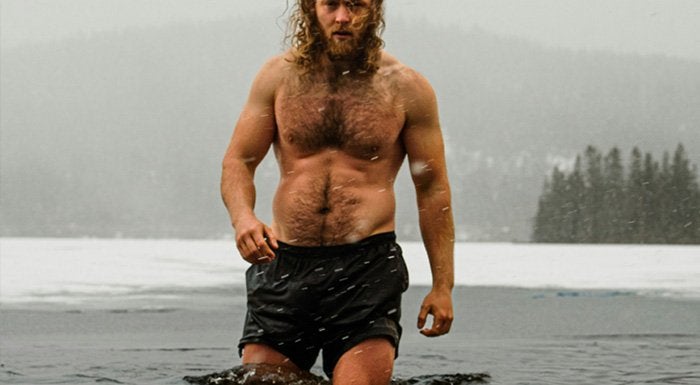
How to get started with cold water therapy
Preparing for your first session
Begin with shorter exposure times — perhaps just a few seconds — and gradually increase as your body adjusts. This gradual approach allows your skin, blood vessels and nervous system to get used to the cold. Pay attention to any discomfort or numbness. If you feel excessively cold, get out promptly.
As you take your first plunge into cold water, focus on slow, deliberate breaths. Controlled breathing helps manage the initial shock and prevents hyperventilation. By maintaining steady breaths, you can stay composed and adapt more effectively.
Plan the right time of day for your cold water immersion. Morning exposure can kickstart your day by boosting alertness and enhancing circulation. After a workout, cold water immersion aids muscle recovery by reducing soreness and inflammation.
Safety precautions
If you have any health conditions, especially heart issues, speak to a healthcare professional before embarking on cold water therapy. They can provide tailored guidance based on your specific health status.
While pushing boundaries can be tempting, avoid extreme cold initially. Gradually increase exposure time rather than subjecting yourself to intense cold right away. If you experience excessive discomfort or numbness, exit the cold water promptly.
After your cold water session, warm up by moving around and wearing warm clothing. Gentle movement helps restore circulation and prevents hypothermia.
Also, if you opt for cold water immersion in the great outdoors, make sure to take someone with you.
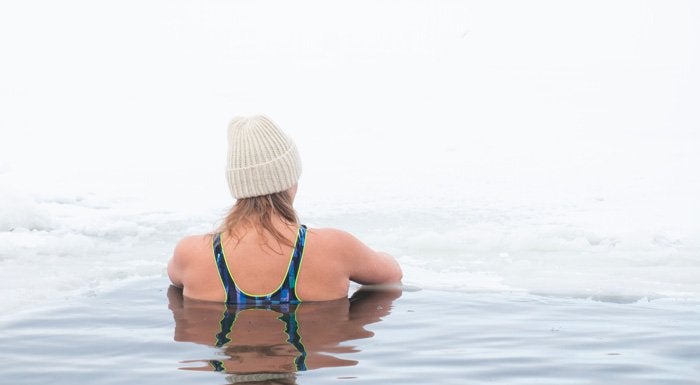
Cold water therapy for athletes
Athletes can benefit from reduced muscle soreness, improved circulation and faster recovery. Cold water therapy can be incorporated into training routines, especially during longer competitions or when training volume or intensity increases.
However, it’s important to note that cold water therapy might reduce the inflammation response needed for muscle growth, so it may not be suitable for all training goals, such as hypertrophy.
If your focus is recovery, try these supplements too:Cold water therapy and immune system boost
Cold exposure wakes up immune cells, making them more vigilant and ready to fend off invaders. The stress of the cold releases hormones like norepinephrine, which modulate immune function.
Cold water may also reduce fatty deposits in the arteries, promoting cardiovascular health and preventing chronic disease. Healthy blood flow supports the movement of immune cells throughout the body.
Potential risks and contraindications
Cold water therapy places added stress on the body, so caution is needed. If you have any of the below health conditions or any doubts, seek medical advice before starting.
Raynaud’s Disease: This condition affects blood flow to extremities, making cold water therapy unsuitable.
Heart Conditions: People with heart issues should be cautious and seek professional advice first.
Extreme Cold Sensitivity: Adjust your practice based on your sensitivity to cold.
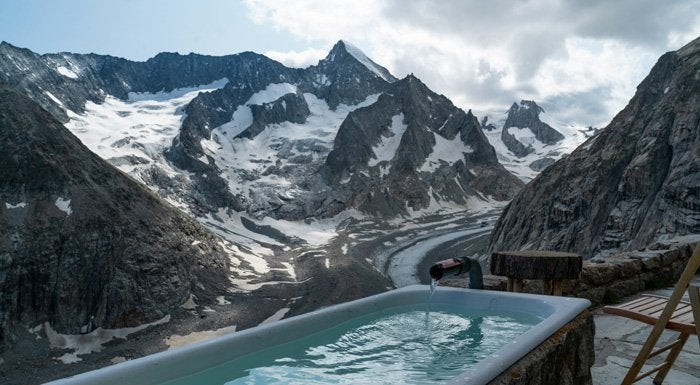
Frequently asked questions about cold water therapy
How often should I do cold water therapy?
Start with 1-3 times per week, depending on your phase of training and aims, and adjust based on your comfort level.
Can I combine cold water therapy with hot baths or saunas?
Yes! Alternating between hot and cold water provides additional benefits. The heat helps to warm up muscles and dilate blood vessels, flooding muscles with nutrients and growth metabolites that can support recovery and growth.
Is it just for elite athletes or people who exercise a lot?
Not at all. Cold water therapy offers benefits beyond training and into general health and wellbeing.
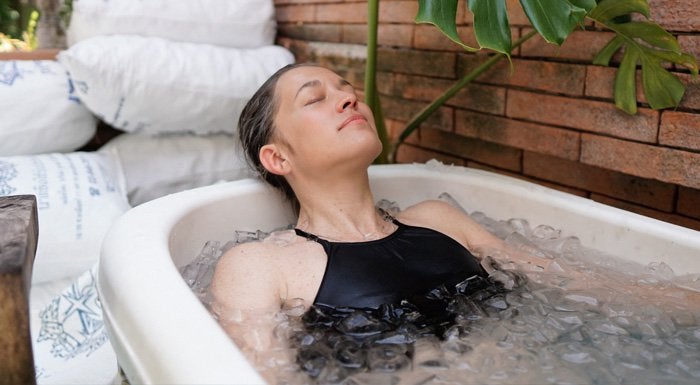
Combining cold water therapy with other health practices
Alongside cold water therapy, you can consider the following strategies to enhance its benefits:
Stretching and active recovery:
Combine cold water immersion with stretching or light exercises to promote muscle recovery. Stretching helps maintain flexibility and reduces muscle tension, while active recovery can improve blood flow and support muscle repair.
For some stretches to improve flexibility: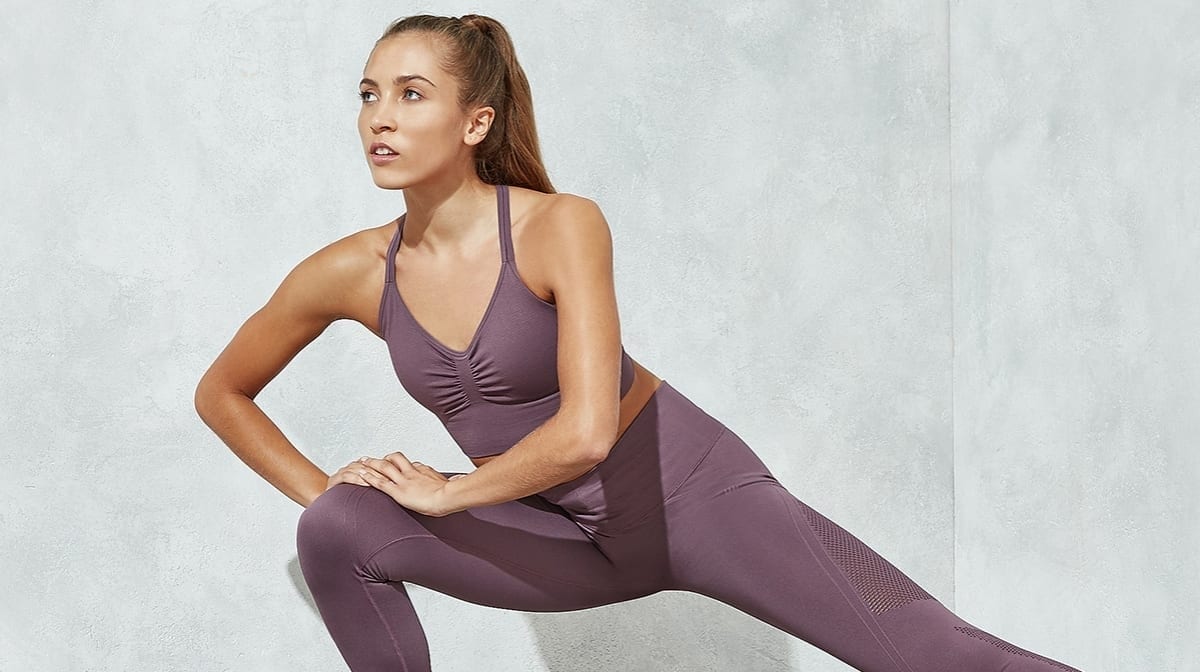
Stretching Exercises to Improve Flexibility
Improve your flexibility and loosen up those muscles with these exercises.
Breathing techniques:
Incorporate deep-breathing exercises, like the Wim Hof method, which can enhance oxygen delivery, reduce stress and boost energy levels.
Meditation:
Like breathing, meditation can help to reduce stress and its effects, allowing your body to relax and respond better to recovery.
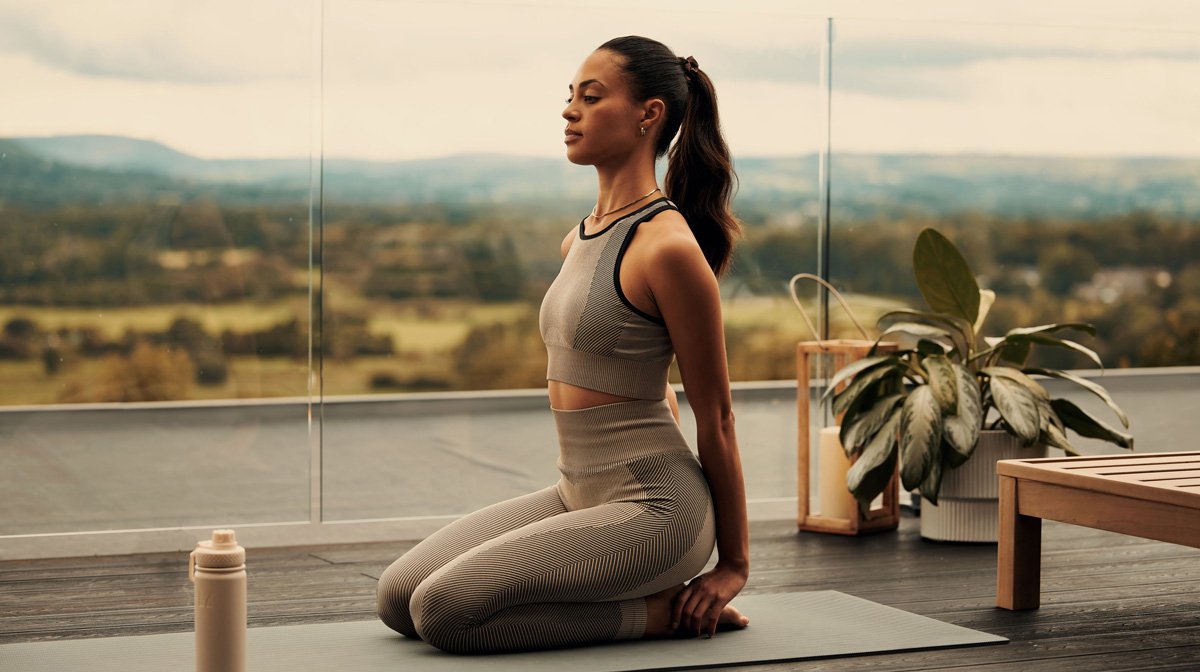
Master Mindfulness & Meditation With Time Blocking
Decompress in a way that suits you.
Warm water therapy:
Using a contrast of cold and hot water can improve blood flow and challenges the body to improve recovery and hormone release.
Cold water therapy: myths vs facts
Myth: Cold water therapy is only for extreme athletes.
Fact: Anyone can benefit from it, regardless of fitness level.
Myth: Cold showers cause illness.
Fact: Cold exposure can boost the immune system.
Myth: Cold water works all the time, every time.
Fact: Responses vary from person to person, so some people feel the benefits more than others.
Myth: Use it after every training session for superior recovery.
Fact: Too much cold water therapy might reduce long-term training gains, so try not to overdo it.
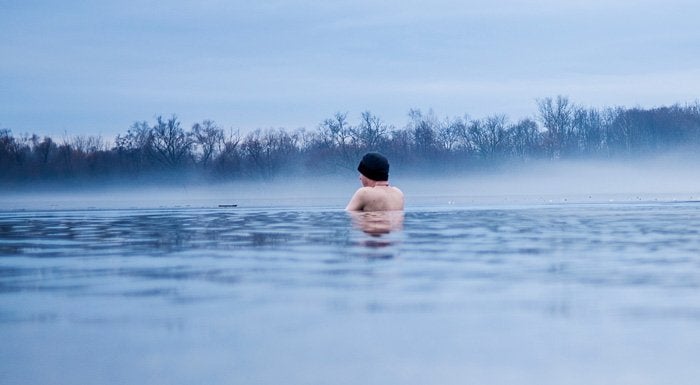
Future research and developments in cold water therapy
As a relatively new practice, more research is needed to review the potential long-term positive and negative effects of cold water therapy in various situations and circumstances.
Take home message
Embrace the chill! Cold water therapy offers a refreshing way to help boost your physical and mental wellbeing. Start slowly, stay safe, and reap the rewards of this invigorating practice. If in doubt, seek further advice before starting. Cold water therapy can offer plenty of benefits but remember to use it for the right reasons.
Enjoy this article?
FIND MORE HERE:
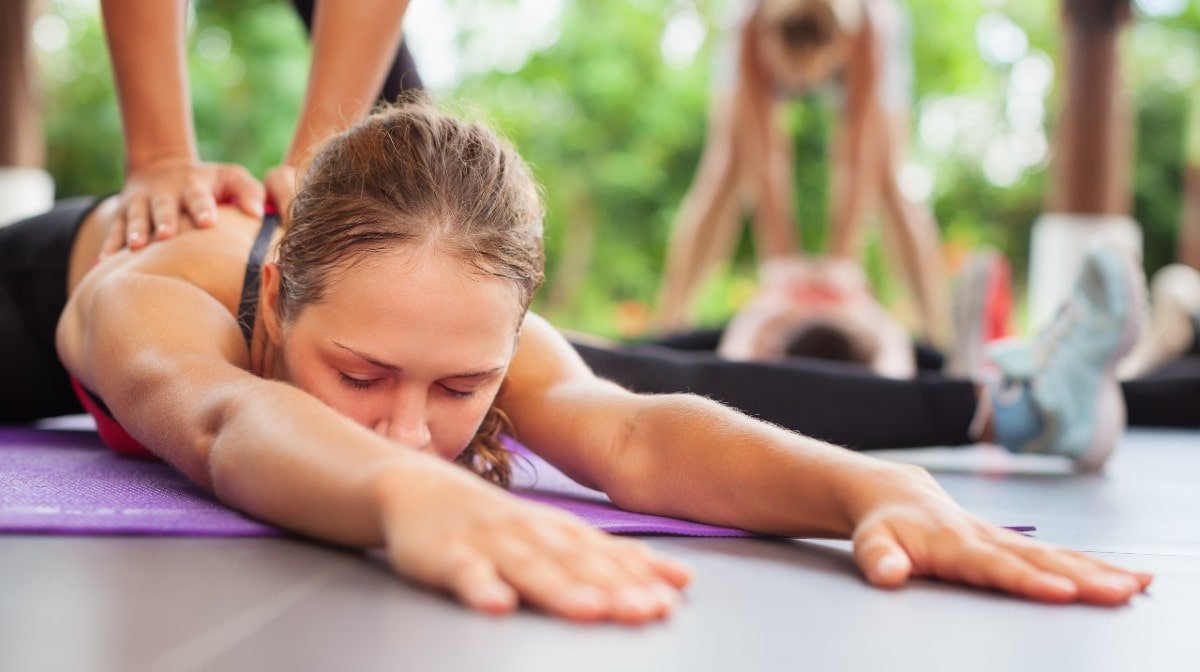

The 10 Best Stretches For Running | A Runner’s Guide
Prevent injury with our PTs top stretches.
Our articles should be used for informational and educational purposes only and are not intended to be taken as medical advice. If you're concerned, consult a health professional before taking dietary supplements or introducing any major changes to your diet.

Simon started his fitness journey from a young age, and was playing sport as soon as he could roll a ball. This pushed him to compete in a variety of sports from rugby to squash.
After completing an MSc in Strength & Conditioning, alongside a PT qualification, he gained an academic role at the University of Chester. From lecturing to research-based studies, his applied role caters to both team and individual sports.
